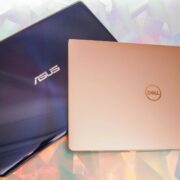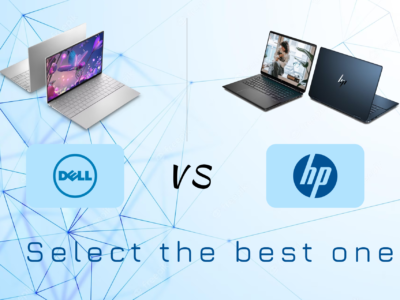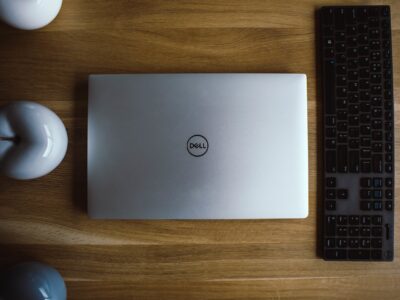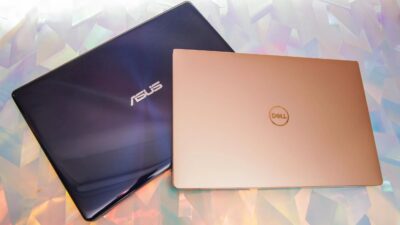You get to choose between a lot of options when buying a new laptop. The company, the model, the config, and so on. But the most important choice in choosing a laptop is what type it is. Mainly, there are two types; a normal Business laptop and a ‘Gaming’ Laptop or Workstation. And the difference lies in what they’re intended to be used for.
Ordinary Laptops or Ultra books are used to get you through a day of office work and you’ll easily last a full day on their batteries. They are built to get the job done and that’s it. If you want to go a step further and step into the world of performance, you need a Gaming Laptop. Purpose built machines; designed with one thing in mind, Performance! But, that’s just the beginning. Stick around and find out. Take a look at we have planned for this one:
What are Normal Laptops
The name of the game is Ordinary. Have you ever wanted a laptop that isn’t all flashy and expensive but is capable of handling your office work and getting you through the day? Well if you do, Ultrabooks and Business Laptops are the perfect thing for you. These things are lightweight, small, slim, and just have a ‘no worries’ type of attitude. Their batteries can easily last you a full day of usage.
So we begin, we have to be clear that Ultrabooks are not the same thing as a Business or Budget Laptops, they’re more of a premium version of them. These laptops are perfect for Students and Businessmen to get through a full day of school or office work. Let’s get into some details:
Performance
When we talk about the performance of a laptop, the first thing that comes up is the CPU. Ultrabooks don’t really scream performance. But you still expect an 11th Generation processor from Intel or a Ryzen 7 from AMD. You might be wondering, these sound like some pretty ‘performy’ processors. Well not exactly.
Even though these are some pretty good processors, their clock speeds are turned way down, you expect speeds below 2 GHz. This is because they need to be super power efficient. Intel’s U chips are what coined the term Ultrabooks, these processors are really good on saving power, and this is what makes your last a full day. The next performance aspect is the GPU. In gaming, you need a powerful dedicated GPU to run those AAA titles. But, in these things, you don’t really need them as you won’t be gaming in your school or office. Ultrabooks have Intel or AMD integrated graphics.
Expect an Intel Iris Xe or AMD Radeon integrated graphics. Last but certainly not the least, the RAM. Normal everyday usage requires a maximum of 8 GB DDR4 RAM to run your Microsoft Office and other basic software. And that’s what you’ll get in these laptops. That concludes the performance side of things, let’s move on.
Display and Battery
The screens in these laptops don’t really need to have the highest refresh rates or the sharpest resolutions. You can expect a minimum of FHD display that puts out 1920 x 1080 resolution and a refresh rate of 60 Hz or lower. This will do for everyday usage where you don’t really require a flashy display.
Some premium Ultrabooks do have great screens though, the HP Spectre x360 has a 13.3” 4K 3840 x 2160 AMOLED Touchscreen. The size is also something that doesn’t need to be big. People prefer 13.3” to 14” screens in these laptops as it makes them easier to carry. This is also what lets them have an amazing battery life. You can easily last a full day of work from these things, and can expect 10 + hours from these Ultrabooks.
| A Quick FactPewDiePie uses Dell G7 Gaming Laptop for its gaming and editing his Youtube videos as well. A remark made from his side “this thing works magic from me especially while rendering high quality videos.” |
Design and cooling
These laptops are slim, lightweight and sort of understated. They don’t have to integrate any performance equipment and massive cooling systems to cool them down like gaming laptops do. And if we talk about Ultrabooks, those laptops have a really premium feel.
Expensive and solid materials are used in their construction and they scream luxury. Laptops like the ASUS Zenbook and the LG Gram are pieces of art. As the performance isn’t a focus with these things, they don’t really get all that hot, which doesn’t force manufacturers to create bulky body designs in order to fit those beefy cooling systems. That is a huge reason why they’re slim and pretty.
So, that was an overview to normal laptops, now let’s get into what Gaming Laptops bring to the table:
Overview of Gaming Laptops
Remember when we talked about what normal laptops are, well think of the opposite now. Gaming laptops are purpose built machines that are designed to run the latest and the most power hungry games on the market. They’re completely different to any ordinary laptop on the market and here’s what they offer:
Performance
If Ultrabooks and Business laptops aren’t your thing and you want something that can give you a massive surge of power, these things are built for that. And their performance specs speak for them. With the latest and the greatest from Intel and AMD, they can outperform anything.
Modern gaming laptops come standard with either an Intel Core i7 or i9 11th Generation, or a Ryzen 9 from AMD. But, with a twist. The clock speeds are turned way up! You can expect your gaming laptop’s processor to run anywhere from 4 to 5 GHz, integrated with boost technologies from both CPU manufacturers. You can quite possibly throw everything at these things and they’ll run everything without even breaking a sweat.
The GPU is another thing that’s beefed up in these things. You can expect a dedicated NVIDIA GPU with a minimum of 6 GB GDDR6 VRAM. What you get matters on the config but normally, you can choose between an RTX 3060, 3070 or a 3080. You can easily run modern AAA tiles like the Witcher 3 Wild Hunt, Forza Horizon 4, Halo Infinite, and of course, GTA V. That ticks two out of three things in the performance triangle, what about the RAM?
Nothing to worry about. You can expect a minimum of 16 GB DDR4 RAM in these things, and depending on your config, you can bump that up to 64 GB! You might be starting to see the theme here. But that’s not all.
Good Display & Bad Battery
In order to play the game, you need to have a great display. Without one, you won’t be able to enjoy your modern games for a second. You need a sharp resolution, a high refresh rate, and a decent size.
Luckily, manufacturers know that and you get a 15.6” FHD 144 Hz, minimum! Depending on the config, you can get a QHD or a better resolution and an even higher refresh rate of up to 360 Hz. The size can also go up. Take the Lenovo Legion 5 Pro for instance, that thing has a 16” display that puts out a resolution of 2560 x 1600, and a refresh rate of 165 Hz.
Ofcourse, all good things come at a cost, and no we’re not talking about the huuuge price tags, yet. We’re talking about battery life. To run all those power hungry performance gadgets, and a high res display, it takes a lot of energy, which ends up draining the battery in under 5 Hours of gaming.
The Flashy Design and a Beefy Cooling System
Unlike Ultrabooks, Gaming laptops are super flashy. They use a lot of RGB in their design. They have crazy angular edges and just bulk in general. Now, we get the flashiness and the RGB, they’re for the theme of gaming. But why bulky? The reason is everything that’s under the chassis of these things.
Big performance and a complex cooling system to cool down the equipment. The dedicated GPU, RAM sticks, and the desktop grade CPU take up a lot of space. And this ends up squishing things together. For that, manufacturers need to design a big efficient cooling system so your gaming laptop doesn’t turn to char under pressure. This leaves them with no choice but to add some bulk to the design and they end up with a heavy, bulk and crazy looking laptop.
So, that concludes the introduction to two very different types of laptops. And you may have already started to see the difference. Now, let’s get into what exactly sets them apart:
What Sets Gaming Laptops Apart from Normal Laptops
To help you understand the difference between these two, we’ve created a list, let’s go through it:
CPU
Starting from the performance perspective of things, the CPU is one of the major differences between a Gaming laptop and a normal laptop. Gaming Laptops CPUs are really fast and can handle all types of tasks. Whereas, Normal laptops can only handle your everyday light tasks like office work, Microsoft software etc.
You can’t expect a Normal laptop to run any sort of games. What you can do is work for a full day on these things, thanks to their power efficient low voltage processors. Gaming Laptops are the complete opposite; you get immense performance CPUs that go up to 5 GHz, and suck in a lot of power. You can multitask, game, or literally do anything on these things and it won’t fail you.
GPU
The GPU is the big one. It really lets you understand why these two laptops are so different. An ordinary laptop doesn’t have a dedicated GPU, which is completely fine if you just want to use it for work; the way it was intended to be used. But, you can’t game on it, like at all. Intel Iris Xe graphics are not built to run any titles.
These are basic Graphics processors that come with the actual CPU. On the other hand, gaming laptops have full desktop grade dedicated GPUs which start from 6 gigs GDDR6 and go up to 16 GB! And that is purely working on the graphics side of things. This is what lets you run the latest AAA titles on your laptop. You can expect to run major games like GTA V, Assassin’s Creed Valhalla and Psychonauts 2 on max settings with ease.
Display
As we explained earlier in the introduction, ordinary laptops don’t really need to have high refresh rate screens or super sharp resolutions. When have you ever wanted a 360 Hz QHD 17.3” screen for work? Never right? What you do want, is something that’s decent enough to let you experience good graphics, and is easy on the battery.
Whereas, in gaming, you need something that has a super quick refresh rate, big in size, and has an amazing resolution. Well, gaming laptops have exactly what you’re looking for. Big wide 15.6” to a full 17.3”, 144Hz + displays that put out a minimum of FHD resolution. So, that’s another major difference between the two.
RAM
RAM is not a huge factor in debating the differences between these two, as they’re always configurable. You can always opt for better RAM in any laptop from the manufacturer. But, there is a difference between the requirements of the two. In normal everyday usage, you don’t need a massive amount of RAM.
You can get by with just an 8 GB DDR4 Stick that can easily handle your Microsoft Office and other applications. Whereas, in gaming you need to have 16 gigs. You could make do with an 8 GB one, but that is literally the minimum requirement of most modern games. That would bottleneck your system and background processes won’t have any room to run. So, think of it this way, it isn’t a gaming laptop if the RAM is below 16 GB.
Price
This is a biggie. Gaming laptops are super expensive. And one might expect them to be. Just look at all those features, Core i9-11800H, RTX 3080, 16GB RAM, 1 TB NVMe storage, just wow. And these things don’t come cheap, which bumps up the price of a relatively normal gaming laptop to $2500, and more, if you go for a nice config.
This really puts things in perspective. It makes people wonder if they really want to game or not. Normal laptops, on the other hand, cost way less. You expect them to start at $700 and if you go for premium Ultrabooks, you might get that up to like $1500. That is way less than Gaming laptops. So, it really comes down to what you want to do.
Design
This might seem obvious now that you’ve gotten an idea from the introductions. But, it is still a major difference and worth mentioning. Normal laptops are slimmer, sleeker, lighter, and more understated than gaming laptops. Gaming laptops are the opposite; sharp edges, RGB lights, bulky shell, heavyweight, and just downright crazy design language. You can tell just by looking at them that they’re two different animals.
Customer Base/Intended Use
This is really the main difference. What these two are built for. You can’t expect a normal laptop to run the latest AAA games, just as much as you can’t ask a gaming laptop to be cheap, last a full day on battery and be lightweight. It just doesn’t work. So, this is the part where you decide what you actually want. If you want to game on the go, you have one choice; A gaming laptop.
If you don’t want to game and just want to use your laptop for work, want it to be easy to carry, there’s no other option but to buy a normal laptop or an Ultrabook. Hopefully, this helps you put the final nail in the coffin and you now clearly understand what the difference is between the two.
Now, let’s help you decide what suits you the best::
| Specs | Normal Laptops | Gaming Laptops |
| CPU | Intel Core i7 or AMD Ryzen 7 at ~3GHz | Intel Core i7 or i9, Or AMD Ryzen 9 at ~4-5 GHz |
| GPU | Integrated Intel Iris Xe | Dedicated RTX 3060, 3070 or 3080 |
| RAM | 8 GB DDR4 to 16 GB DDR4 | 16 GB DDR4 up to 64 GB DDR4 |
| Display | 13.3” to 15.6” FHD or more with maximum 60 Hz refresh rate | 15.6” to 17.3” FHD or more with minimum 120 Hz refresh rate |
| Price | $800 – $1500 | $2000 to $4000 |
| Weight | 1.13 KG to 1.6 KG | 4 KG to 5 KG |
What YOU Should buy; Normal or Gaming Laptop?
If you’re confused about what suits you the best, don’t worry, you’ll know the answer to that by the end of this section.
The Work:Play dilemma
Work Much?
Well not really a dilemma is it. You just need to ask yourself, are you going to use your laptop for work or play? It’s that simple. If you’re someone who needs to get a full day of office work out of their laptop, you need a stable machine with a good battery life and a super lightweight and slim body. Something you can easily carry with you and can easily fit in your backpack. That is the exact description of an Ultrabook or a Business Laptop. And that is exactly, without any hesitation, what you should buy for yourself.
Play Much?
If you require performance out of your machine, and want your laptop to handle literally everything. You need a laptop that has the latest and the greatest performance specs. For that, you need a Gaming Laptop. A gaming laptop is loaded with performance and allows you to run AAA games anywhere you want. If you’re a gamer who likes to game on the go. A Gaming laptop is perfect for you. You can use it for anything just as long as you don’t require a super long battery life. So, if you want to game on your laptop; a gaming laptop is what you want.
Finding that Work:Play balance is the only thing keeping you from deciding between the two. Once you figure out what it is you want; the choice really is simple. We won’t try and influence your decision, so here some of our picks in both categories:
Buying Guide for a Gaming Laptop:
We’ve picked out some gaming laptop options for you to help you buy the best one for you. Have a look at the TechyWired picks for gaming laptops in 2022:
Best Performance: MSI GS76 Stealth
Key Points
- Intel Core i9-11900H up to 4.9 GHz on boost
- NVIDIA RTX 3080 16GB GDDR6
- 64 GB (2 x 32GB) DDR4 RAM
- 17.3” UHD 120 Hz
- 2 TB NVMe SSD
- Price Range: $3800
Price
Buy Now on Amazon: $3499
Best Battery Life: Dell G15 5515
Key Points
- AMD Ryzen 7 5800H up to 4 GHz
- NVIDIA RTX 3060
- 16 GB DDR4 RAM
- 15.6” FHD 165 Hz
- 1 TB NVMe SSD
- 10 + Hours of gaming on battery
- $1400
Price
Buy Now on Amazon: $1369
Best value for money: MSI Stealth 15M
Key Points
- Intel Core i7-11375H up to 4.8 GHz
- NVIDIA RTX 3060
- 16 GB DDR4 RAM
- 512 GB NVMe SSD
- 15.6” FHD 144Hz
- $1250
Price
Buy Now on Amazon: $1189
Let’s go over some ‘relatively normal’ laptop options:
Buying Guide for a Normal Laptop
Take a look at some of TechyWired’s normal laptop picks
Best Display/Looking: HP Specter x360
Key Points
- Intel Core i7-1165G7 up to 4.7 GHz on turbo boost
- Intel Iris Xe Graphics
- 16 GB DDR4 RAM
- Beautiful 13.5” 3K (3000 x 2000) Screen
- 1 TB SSD + 32 GB Intel Optane
- 1.34 KG
- Starts from $1500
Price
Buy Now from Best Buy: $1729
Budget Laptop: Dell XPS 13
Key Points
- Intel Core i5-1135G7 up to 4.2 GHz on turbo boost
- Intel Iris Xe Graphics
- 8 GB DDR4 RAM
- 256 GB NVMe SSD
- 13.3” FHD Touchscreen
- 1.23 KG
- Starts at $800
Price
Buy now from Dell: $879
Lightest: Lenovo ThinkPad Carbon x1 gen 9
Key Points
- Intel Core i7-1165G7 at 2.8 GHz
- Intel Iris Xe Graphics
- 8 GB DDR4
- 256 GB NVMe SSD
- 14” FHD
- 1.13 KG
- Starts at $1300
Price
Buy now from Amazon: $1870
Conclusion
There’s a lot to consider before pulling the trigger on a piece of tech that costs more than $1000. You need to determine exactly what it is you want out of your laptop before narrowing down your options. Once you figure that out you just need to pick one that suits you. We’ve given you a complete guide on understanding your needs and what to buy.
We’ve also included specific models for each category so really can’t go wrong with either of the categories. The only thing left to do for you is to decide whether you’re a gaming laptop customer or more of a Business Ultrabook customer. It really is that simple. Head on over to our FAQs section and take a look at some of the most common questions we get asked.
FAQs
Can I use my gaming laptop for school?
Yes, a gaming laptop is super versatile and you can use it for a bunch of different things. As long as you don’t mind the weight and the size, and have access to a socket, a gaming laptop will perfectly serve as a school or a work laptop.
Do gaming laptops have bad battery life?
Unfortunately, yes. Gaming laptops inherently have a bad battery life because they have to power up a lot of power hungry gaming equipment. The CPU, GPU and the cooling system are always working extra hard when you’re gaming, and that ends up draining a lot of battery. You can expect your gaming laptop to last somewhere between 4 to 6 hours on battery power.
Can I upgrade my normal laptop to a gaming laptop?
Sadly, no. Laptops are not modular and offer little to no upgradability. But we did create a guide on how to improve your normal laptop’s performance to game on it. The best you can do is upgrade the RAM and the Storage to improve performance.
Are gaming laptops reliable?
Yes, depending on your gaming laptop’s build quality, they are as durable as any other laptop. But, if your laptop has bad build quality, it would not be that reliable; won’t matter if it’s a gaming or a normal laptop.
A great blog right! Do share with your friends and family and Do check our latest reviews and articles about gaming laptops and Metaverse.





















Comments